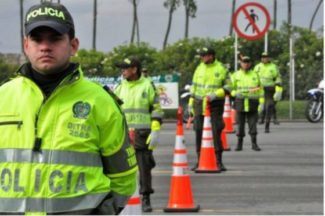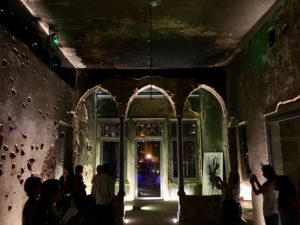Why people do not like the new Police Code
By Carolina Gutiérrez |
Colombia has a new Police Code. The law that created these new rules for "coexistence" has 241 articles, was drafted by the Ministry of Defense in the company of the same National Police and had the approval of Congress. Its spirit, the document says, is "preventive."
The barbarians
By Rodrigo Uprimny Yepes |
Human groups have the tribal tendency to deny the humanity of anyone who belongs to a different culture.
International order is threatened
By Nelson Camilo Sánchez León |
The
first days of the new U.S. government have produced commotion around the world.
With the new code, the police could “legally” violate rights
By Sebastián Lalinde Ordóñez |
Our researcher Sebastián Lalinde analyzed for El Espectador the problems with the new Police Code that is active since January 30th. Dejusticia has led two lawsuits against this law for violating the right to protest and privacy.
The politics of remembering: A yellow house, snipers and civil war
By Krizna Gomez |
In the midst of a busy traffic intersection, Beit Barakat, or the Barakat House, is an assuming edifice. Most Beirutis pass it by every day without knowing that behind its bullet hole-riddled yellow exterior lie almost a century of memories and a continuing struggle
It is time to end Miss Universe
By Carolina Mila Torres |
Command responsibility
By Rodrigo Uprimny Yepes |
The so called "command responsibility" is a technical topic that generates perplexities even among experts. But it is really important since the legitimacy of the special peace jurisdiction (JEP) depends greatly on the topic being adequately resolved.
Corruption for dummies
By Vivian Newman Pont |
Corruption is in fashion and despite this, it has never not been. The target is always politics, so that norms can be modified for the convenience of those who would corrupt, and they can slowly replace the State.
Peace without participation?
By César Rodríguez-Garavito (Retired in 2019) |
Something paradoxical is happening with citizen participation after the end of the war with FARC. Those who initially opposed the plebiscite but ended up winning, now suddenly embrace participation to claim that the peace accord is legitimate. Instead, those who supported the plebiscite and promoted participative democracy through the years, seem to be defensive after the October 2nd surprise.


